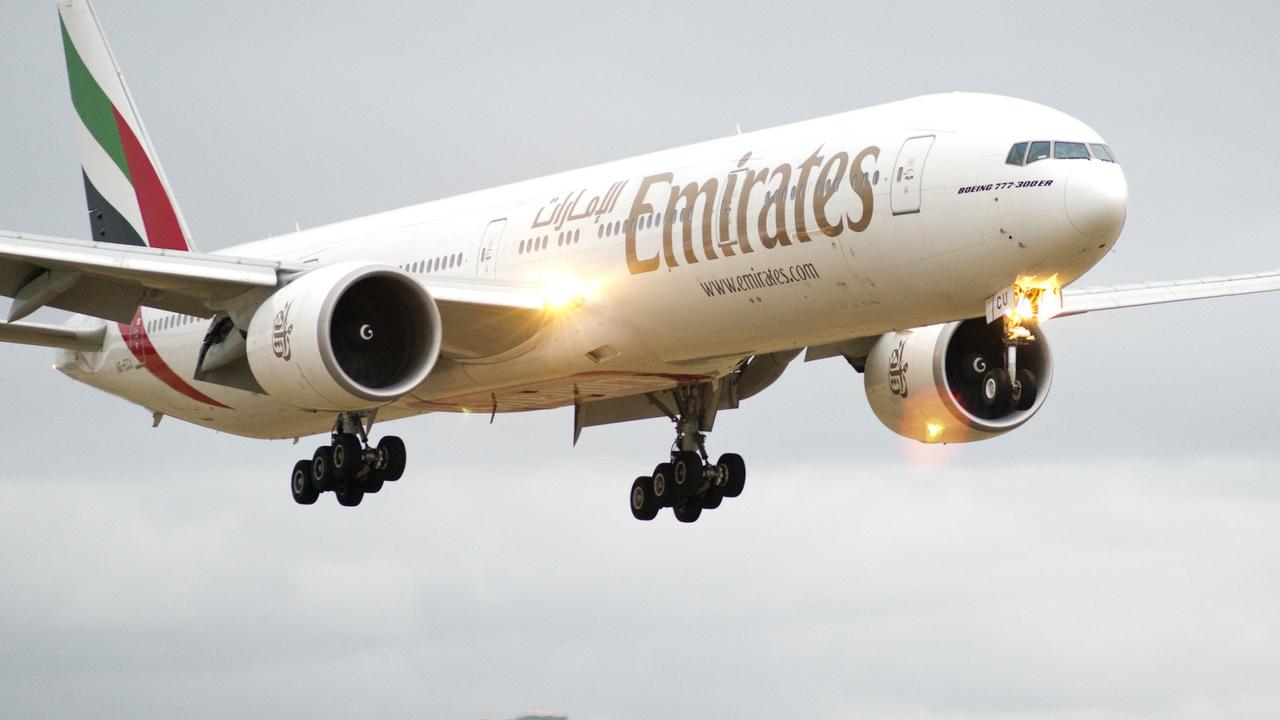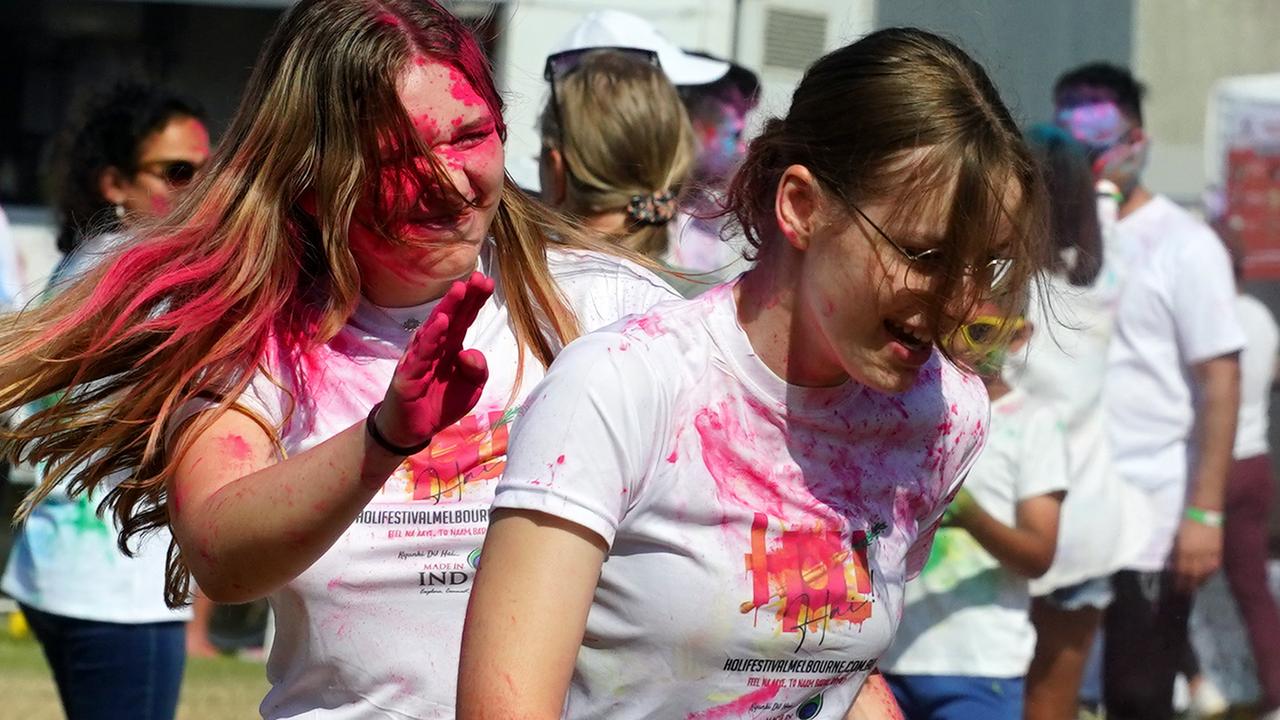Lost paradise: Photos show chilling aftermath of beach resort massacre
THEY are lavish resorts located in a bustling beachside town, but this is the disturbing reality of what remains years after terror struck here.
IN WHAT used to be a bustling beachside resort, grand hotel lobbies are eerily silent.
Neglected beach umbrellas have toppled on their side, pools once surrounded by sunbathers are drained and unkempt, and even rows of empty seats wait for no one, getting covered in dust.
These are the disturbing scenes inside the lavish lost hotels of Tunisia, which were suddenly abandoned after a gunman opened fire on holiday-makers in a terrorist attack on the beach at Port El Kantaoui in June 2015, killing 38 people, including 30 British tourists.
Seifeddine Rezgui slaughtered dozens of tourist on the sand before entered the grounds of the Riu Imperial Marhaba Hotel to continue his rampage. He had disguised himself as a tourist before pulling out his Kalashnikov, a weapon which had been concealed inside a beach umbrella. He also carried a grenade in his other hand.
Rezgui was shot dead by police, and Islamic State claimed credit for the massacre.
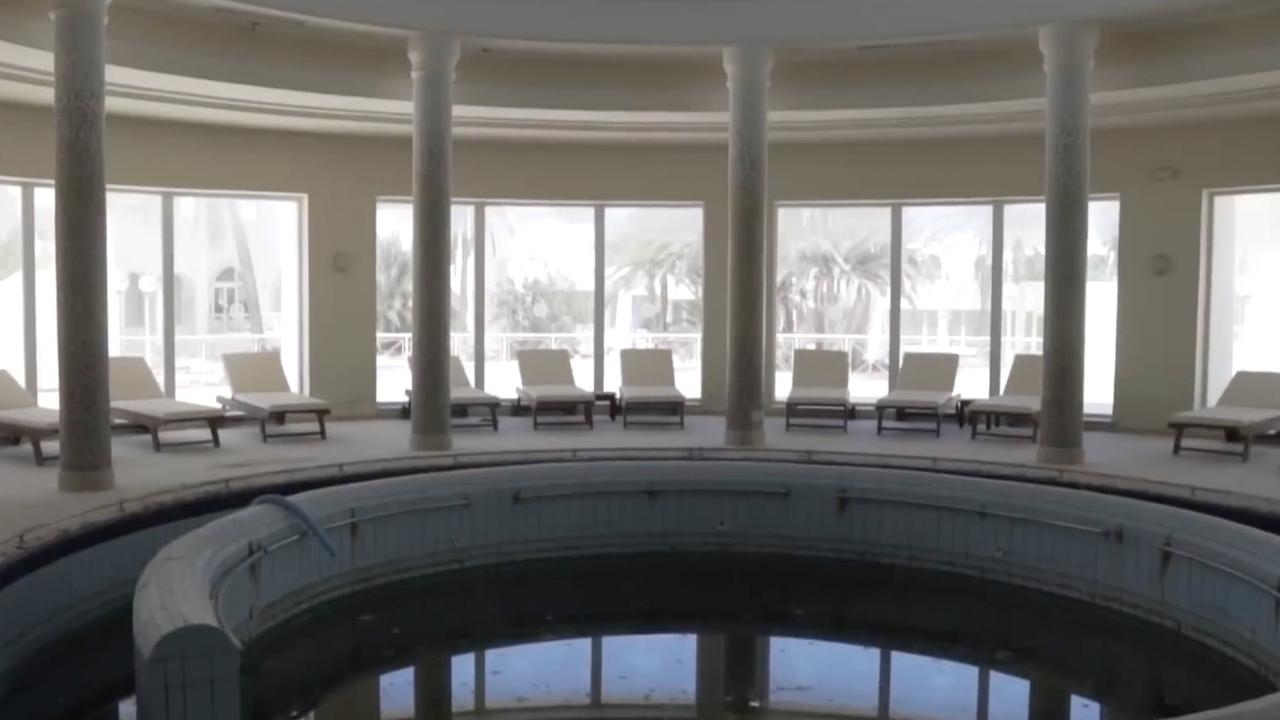
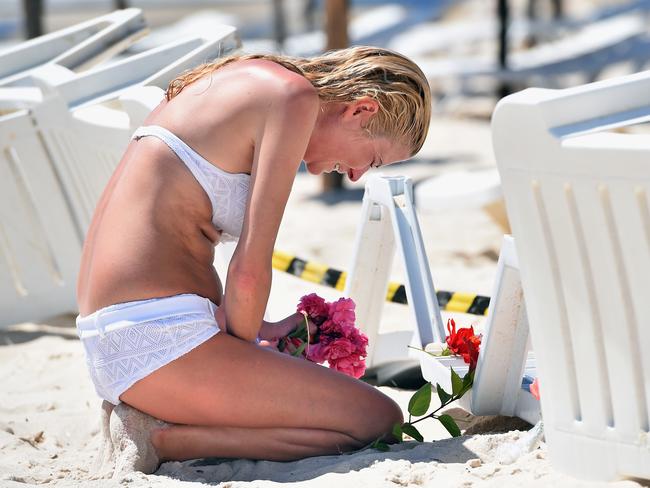
Tunisia was a popular, affordable holiday spot among Europeans, likened to a Bali for Brits. Some of the hotel resorts in Island Djerba that were abandoned after the attack remain perfectly preserved, while others lay in ruins.
Stunning chandeliers hang from ceilings and facilities, from a fully-equipped bar to massage tables and spa rooms, remain intact apart from a heavy coating of dust.
Outside, the magnificent Moorish-design courtyards remain impressive yet overgrown in their abandonment, with green pondlike liquid lying in the pools, jacuzzis and water features.
Urban explorer Bob Thissen, from the Dutch city of Heerlen, visited the sites after the country was declared a no-fly zone, and three years after a state of emergency was first declared.
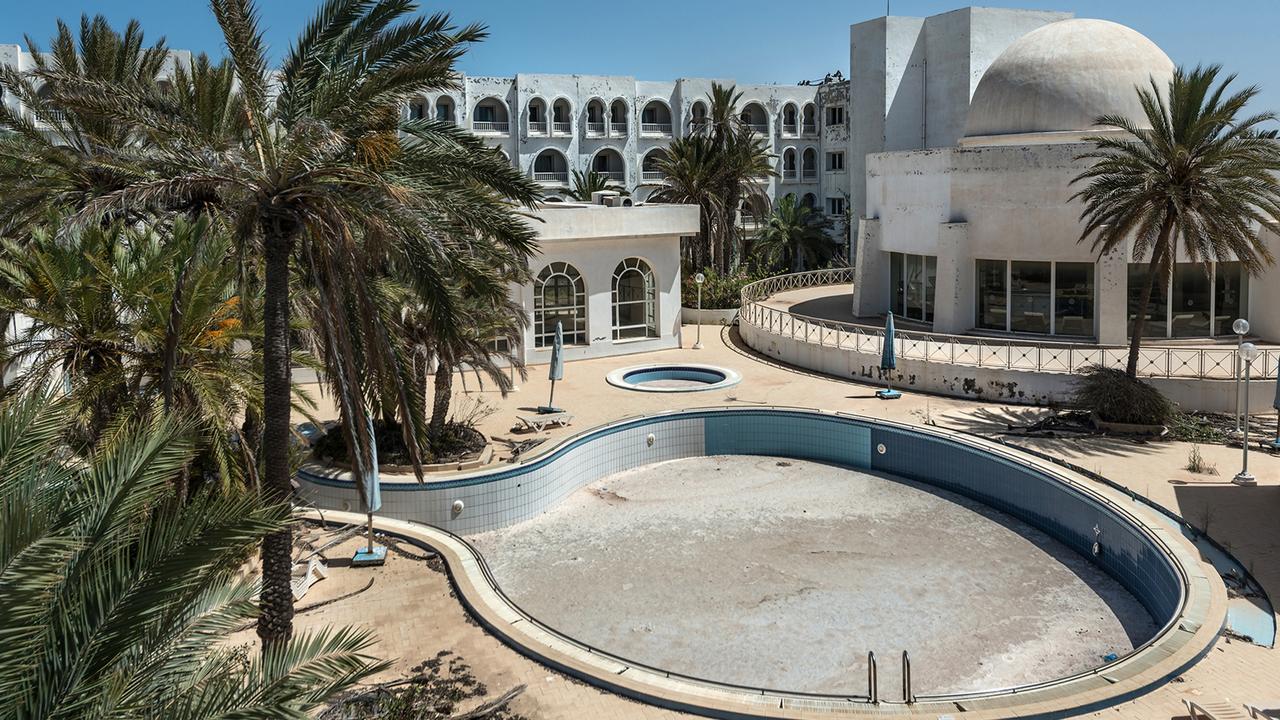
“It was crazy to walk alone in such big resorts where thousands of tourists used to spend their holidays. It was so silent,” Thissen said.
“It’s like a lost paradise. The pools have dirty green water, are half filled with sand and vegetation, or just the salt is left inside the saltwater pools.
“The normally perfect swept paths are now full of sand and covered with dead palm leaves.
“The outdoor animation buildings are falling apart, bars are empty, and the playground equipment appears lonely.
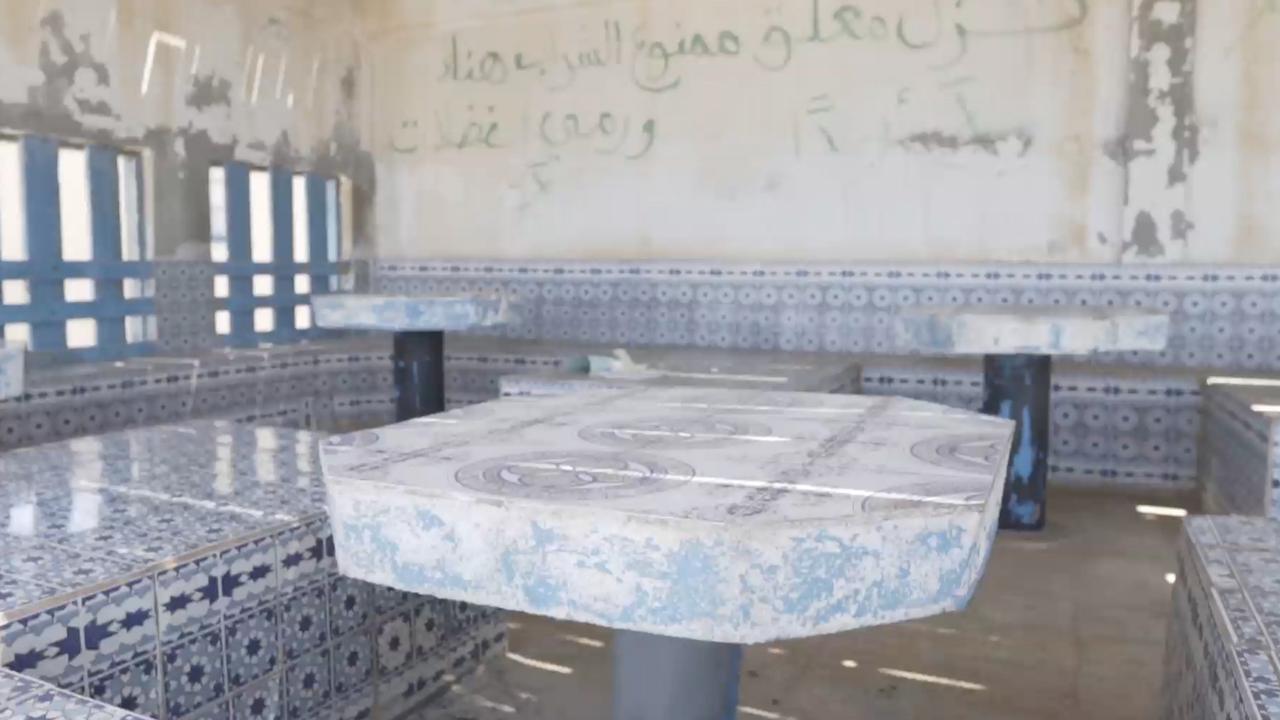
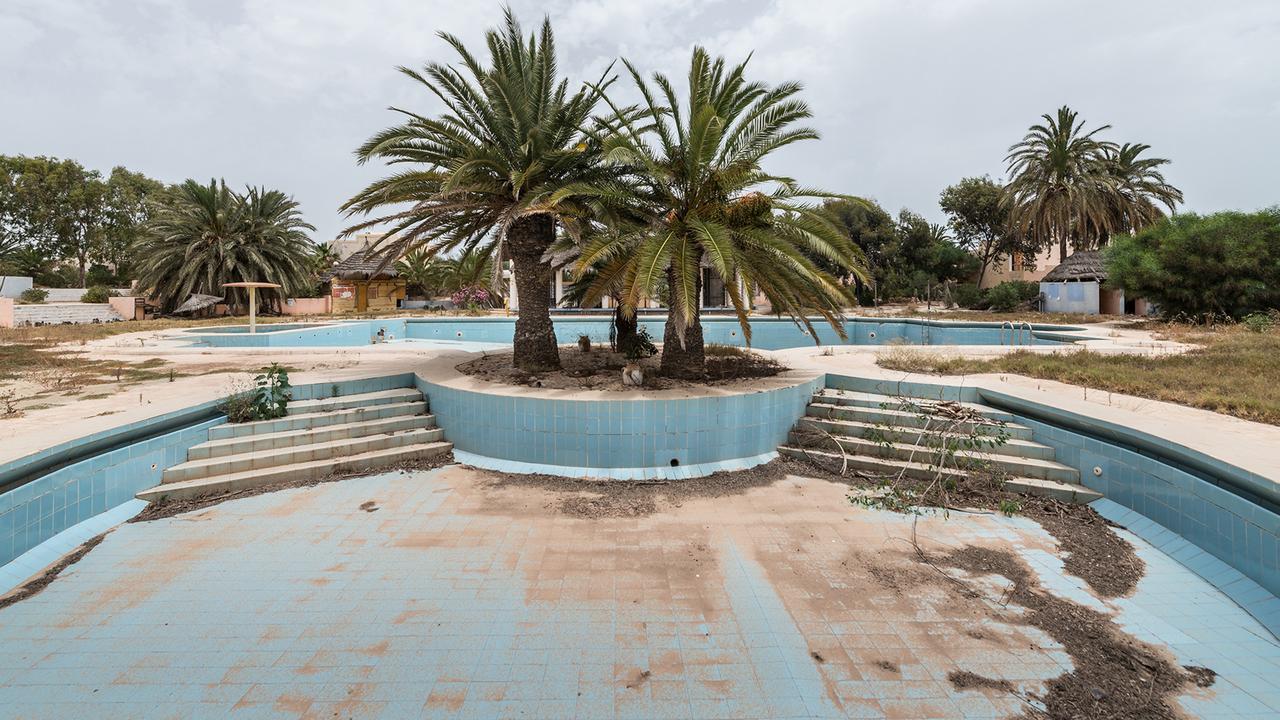
“All resorts were completely different, from perfect condition to completely ruined.”
Thissen said he was particularly struck by the outdoor areas, where thousands of tourists previously enjoyed their carefree holidays.
“I liked the post-apocalyptic exteriors with the pools the most,” he said.
“It’s crazy that these sized resorts are abandoned. Most resorts have multiple outdoor and indoor pools.
“It was a big contrast to see these abandoned decaying hotels against the beautiful blue water beaches.”
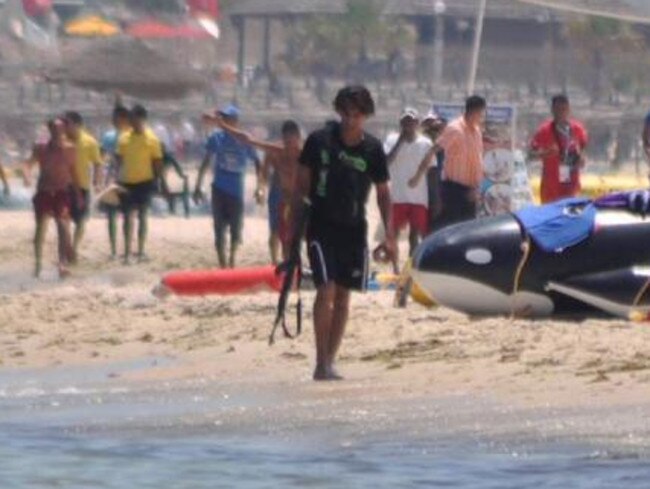
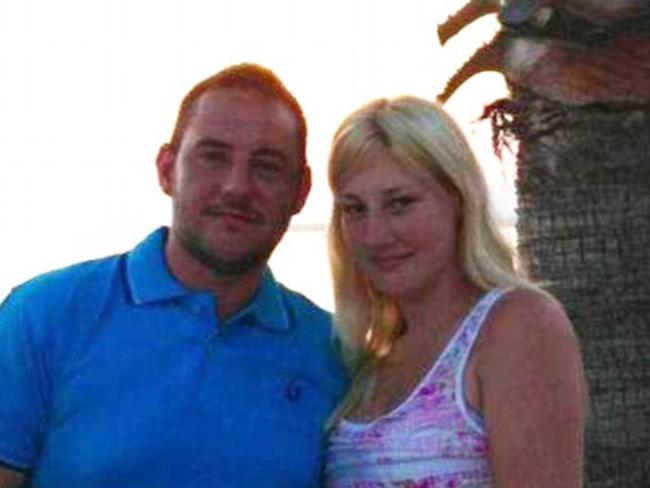
Tourism in Tunisia has declined following the beach massacre and another two terror attacks in 2005.
Seven-one people were killed in three incidents.
Thissen and his group of “urbexers” documented the locations for their channel YouTube channel, Exploring the Unbeaten Path.
“I think the area around Sousse was affected more by the decline than in Djerba (where the photos were taken),” he said.
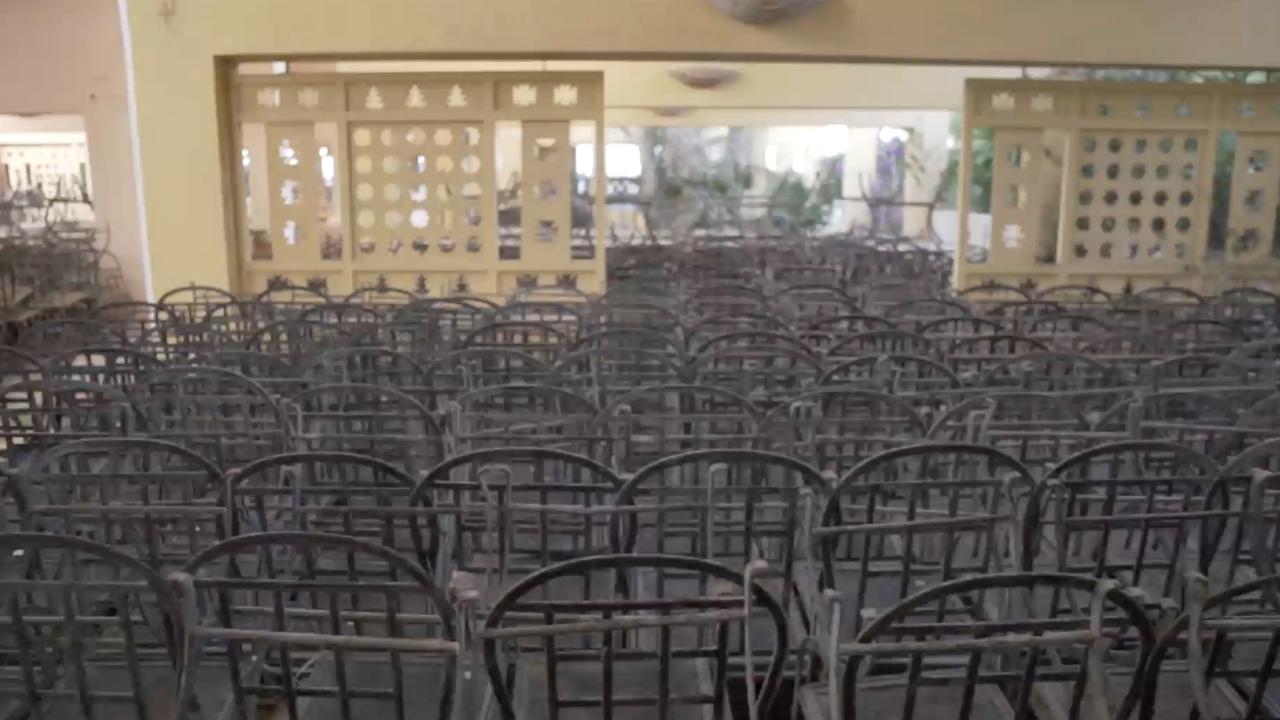
“I think Djerba already had a hard time in the tourism industry, many hotels were already abandoned before 2015, but after the terrorist attacks it became even worse.
“I think it’s not only abandoned due the attacks but made even worse because of the media and government.
“In Western Europe there have been many terrorist attacks and those countries remain ‘safe’ for tourists to visit.
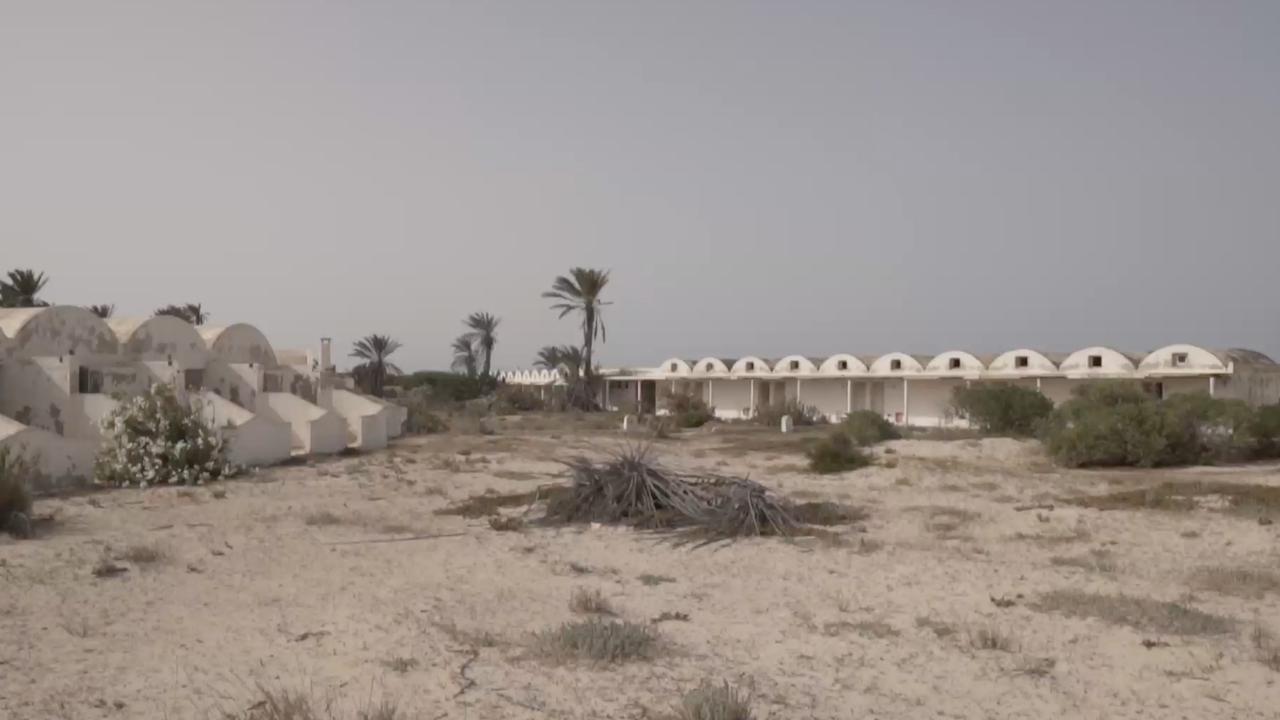
“After the two terrorist attacks Tunisia was turned into a no-go zone, many airlines didn’t fly to Tunisia anymore until recently and it had a huge impact on the tourism industry.
“You can only imagine how many people must have been fired in these giant resorts.”
The number of British tourists are expected to grow after travel companies such as TUI relaunched flights and holidays to Tunisia.
But the number of Vritish tourists this year is expected to reach only 75,000 — just a sixth of the numbers prior to the massacres.
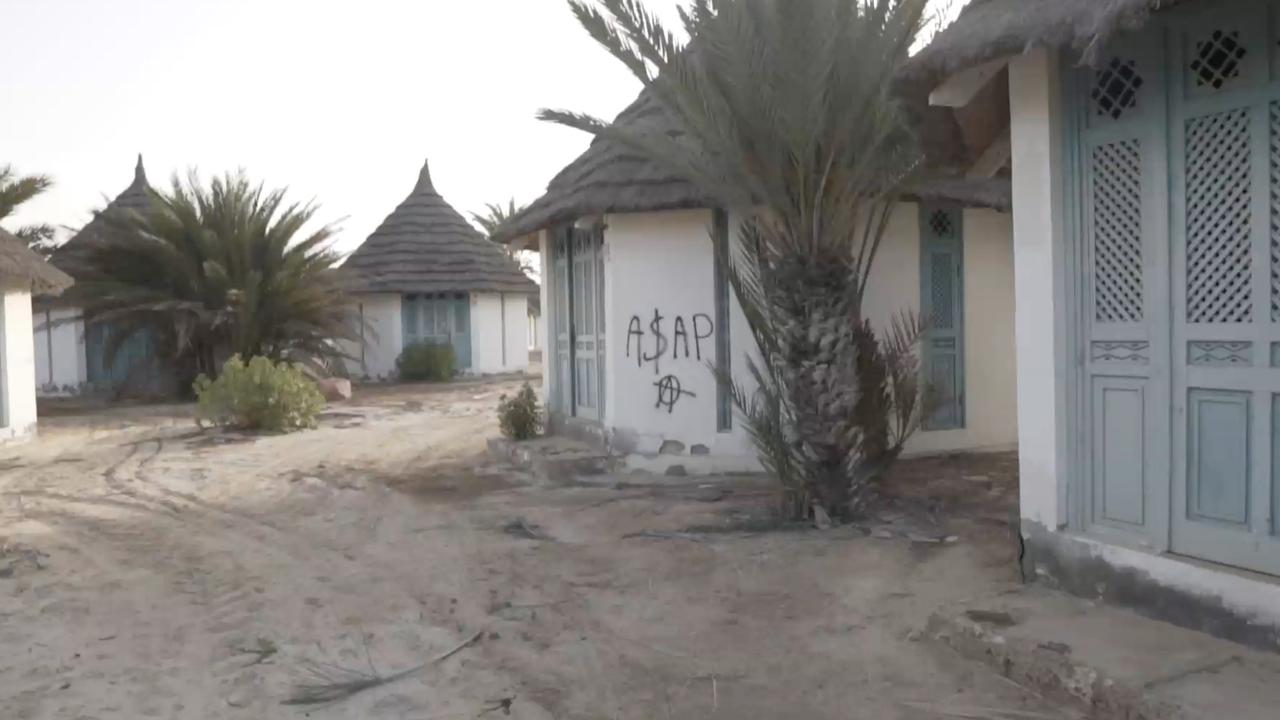
“Since this year Western companies like TUI fly again to Tunisia and you can see the tourism industry slowly begins to rise from the death,” Thissen said.
“Quite a few hotels we drove by are in renovation, preparing for the returning tourism, which was good to see.”
The Department of Foreign Affairs and Trade advises Australian travellers exercise a high degree of caution in Tunisia due to the high threat of terrorist attack. Higher levels apply in some parts of the country.

